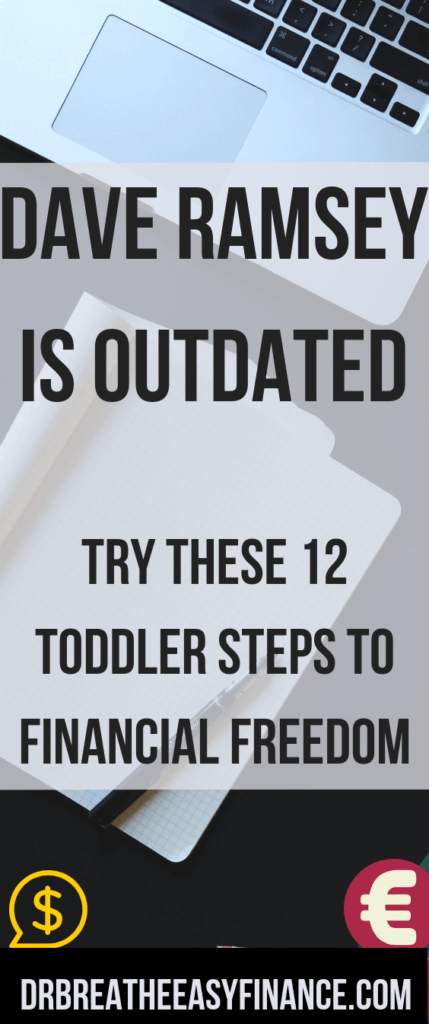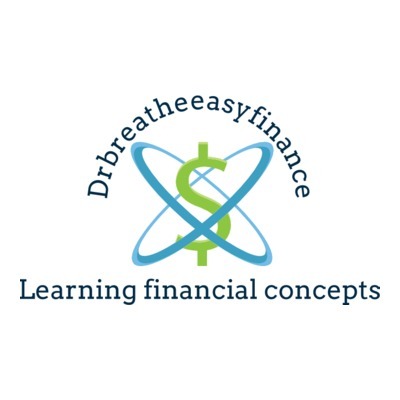It should come as no surprise that I get inspiration from Dave Ramsey’s 7 baby steps to financial freedom.
In addition to his reading his book, I listen to his podcast on YouTube.
One of my main modes of entertainment is listening to him chastise people who made “foolish” financial decisions.
2 of my favorites Dave Ramsey’s quotes
- “You can’t outearn foolishness” – this was said to some guy who made close to 200 k a year but spends a ridiculous amount of money on car payments. He had 3 car payments. He spends more than a grand in car payments per month for one of the cars. Dave took the sentence out of my mouth on that one.
- What’s in your wallet? Do you know what’s in my wallet? Cash! This was one of his rants about credit card debts. He especially detests capital one commercial that says, what’s in your wallet? In fact, I think the best way to elicit a reaction from Dave Ramsey is to tell him you have a huge credit card debt and you want to buy an expensive car.
Dave Ramsey’s 7 baby steps to financial freedom are as listed below for a recap
Baby Step 1 – $1,000 to start an Emergency Fund
Baby Step 2 – Pay off all debt using the Debt Snowball
Baby Step 3 – 3 to 6 months of expenses in savings
Baby Step 4 – Invest 15% of household income into Roth IRAs and pre-tax retirement
Baby Step 5 – College fund for children
Baby Step 6 – Pay off the house early
Baby Step 7 – Build wealth and give!
Don’t get me wrong, this plan works well the way it is. You can do worse than following his advice.
However, I have found that he is extremely debt averse but I am not as extreme.
Therefore, I have made some modifications to my personal financial management.
If you keep an open mind, you might find it useful or at least give you an alternate pathway.
Here are my 12 toddler steps after reading multiple blogs and books over the years.
- Pay all credit cards
- Have the minimum required emergency fund >/= 1000 dollars.
- Refinance your loans
- Pay off any loan with interest rate >5%
- Utilize your employer 401 k up to the match and if you have money left, then Invest in Roth IRA.
- Now pay off the rest of your debts
- Maximize your retirement savings
- Boost up your emergency savings to 3-6 months of living expenses
- Invest in your children’s future education
- Build wealth – Save 1/3 of your income or at least strive to. Go a little wild, diversify.
- Give – at any stage above too if able to
- Optional pay off mortgage
Let’s use Dave Ramsey’s 7 baby steps as a framework since he has more authority on the subject matter than I do. Here is an affiliate link to buy the book. I think everyone needs a copy.
The Total Money Makeover: Classic Edition: A Proven Plan for Financial Fitness
Baby step 1
Save a mini emergency fund. Recommended amount = 1000 dollars.
I believe that credit card debt should be prioritized over the emergency fund.
If you pay off credit cards, you are no longer paying interest, and can still use the available balance in the case of an emergency.
If you are really devoted to improving your finance, you are less likely to use the credit card.
There are also many credit card offers nowadays that wave interest rate for up to a year or more for a new card.
When credit cards are paid, it is then important to begin building your emergency fund.
1000 dollars is a good start, but aim for around 5,000 dollars. Why that much? Although not the norm, I do have high miscellaneous expenses as a doctor.
For example, towards the ending of my fellowship training, I wiped out all of my emergency savings.
In one month, I had to pay for my medical license (about 500 dollars), DEA license (~700 dollars) and critical care board exam (2400 dollars).
My wife, kids and I flew down to our new location to look for housing.
The cost of the flight, rental car and hotel were close to 3,000 dollars. It felt like an avalanche of money spending.
I had to dip into my credit card briefly to survive. Thankfully, I picked up a few shifts that helped me catch up.
Baby step 2
This can be divided into 2 parts.
Part 1 – Pay off all debt.
My strategy is to pay off high-interest debt. Pay off your credit cards if you still haven’t paid it off in step 1.
Pay any loans with interest rates greater than 5%. In my case, one of my student loan interest rate is 2.8%.
So, I did not rush to pay it off. See my post on time value of money. There, I explained the opportunity cost of money and why it might be beneficial to invest your money now rather than later or use on other venture like paying off a low-interest debt.
Part 2 – Use the snowball method

The debt-snowball method is a debt reduction strategy in which the debtor pays off the smallest balance first and work their way up to the larger ones.
The problem with this strategy is that you will end up paying more over time.
Why don’t you pay off the one with the highest interest first, and then pay the ones with the lowest interest rate last?
This is known as the avalanche method. In our post on 15 Dave Ramsey tips you wish you knew sooner, we touched base on the two different ways to pay off debt.
Refinance if possible to a lower interest rate.
Even Dave said he knew the mathematics does not make sense but it works. But my mathematics background will not let me agree with this method.
Baby step 3
Step up your emergency savings to an optimum level of 3-6 months.
My take:
- I will invest in a pretax retirement account before this stage. At least up till the employer matching.
- My goal is to have 3 months worth of emergency funds, as I am not a fan of keeping too much cash. I always think of many ways to invest that cash. The wife wants more so I think we would settle at 6 months.
If you are enjoying the read so far, please go ahead and join the Breathe Easy Finance community. We will send you our budget template to get you started on saving that emergency fund.
Baby step 4
Invest 15% of your income into both IRA and pre-tax retirement account.
As said above, this should come before the cushioned emergency funds of 3-6 months.
15% should be the floor. For high earners, I will recommend one-third of your income. Follow the rule of three. Divide your income into three. One part to uncle Sam, save one part and spend the rest.
This may actually mean If you pay a higher tax, then what should suffer is your spending part. You have some choices to make; you can find a legal way to pay less tax, spend less or earn more.
You can also do any of the combination or better still, do the three. Even if you earn more, try not to grow into your income. Remember Dave’s voice yelling at you about trying to out-earn foolishness.
First is to contribute to 401k up till the employer match. Then, max the Roth IRA – 5500 currently.
If you have maxed both retirement account and Roth IRA (backdoor IRA for high-income individuals), pay off the rest of the debts.
I am currently at this level and plan to finish paying off my loan in the next year. I started at about $210,000 in loans for undergraduate and medical school.
Through intensive extra coverage shifts in fellowship, I managed to cut it down to 106,000.
My new job offered to pay some of the rest. The overall payment including interest was around 300k. Yup Ouch. Thank God it is behind us now.
Baby step 5
College fund for children

There are different takes on this subject. Some like their children to get loans, some want to pay with cash.
However, if you want to invest for college tuition, there are multiple options but the one I am choosing is the 529 plan.
Last time I checked, my state allows for up to $500,000 in investments for each child. Obviously, I am not aiming to do the maximum.
Baby step 6
Pay off your house
The decision here is not clear-cut. There are polarizing views on this: to pay off or not to pay off your mortgage.
I am with not paying off the house view. I believe my money can be better used to invest, especially considering the long-term horizon that I have. Perhaps I will change my tune once I am older.
I personally enjoyed this article that talked about the 11 reasons why you should carry a big long mortgage.
The ones I think are interesting and might be helpful are :
A mortgage is the cheapest money you can borrow
Most of the line of credit in the USA will get you for at least 8% interest. Don’t even let us discuss credit cards which start at a whopping 18%. That’s reverse compound interest right there.
A mortgage is tax deductible and the interest is tax favorable
Why give up the tax benefit of having a mortgage?
Baby step 7
Build wealth and give
This is also divided into 2
- Build wealth –You are already building wealth since baby step 4. This is the time to take more risks. Take interesting asset classes like real estate, start a business, buy a business etc.
- Give – You don’t have to wait until the last step to do this. Find a cause that you believe in and give towards it. I am still looking into the donor-advised fund and deciding on whether it is a good option for me.
RECAP OF THE 12 TODDLER STEPS
- Pay all credit cards
- Have the minimum required emergency fund >/= 1000 dollars.
- Refinance your loans
- Pay off any loan with interest rate >5%
- Utilize your employer 401 k up to the match and if you have money left, then Invest in Roth IRA.
- Now pay off the rest of your debts
- Maximize your retirement savings
- Boost up your emergency savings to 3-6 months of living expenses
- Invest in your children’s future education
- Build wealth – Save 1/3 of your income or at least strive to. Go a little wild, diversify.
- Give – at any stage above too if able to
- Optional pay off the mortgage
What do you think? How will you arrange the steps? Don’t forget to share!!
PIN THE IMAGE

I am a pulmonary and critical care doctor by day and personal finance blogger/debt slaying ninja by night.
After paying off close to $300,000 in student loan debt in less than 6 months into my real job, I started on a mission to help others achieve the same. There is no magic to this than to strap up and get it done. Some of the ways we achieved this include side hustle, budgeting, great negotiation skills, and geographical arbitrage.
When I was growing up, common knowledge in Nigeria is that there is one thing you cannot trust anyone else with, and you guessed it – your money.
Being frugal came easily to me based on my background. However, the concept of building wealth did not solidify in my mind until when I finished medical school. I wish I knew what I know now when I was 14. Still, I don’t know enough and I am constantly learning to improve my knowledge.
My goal is to reduce financial illiteracy among young professionals. I am catering to the beginners – babies and toddlers in financial literacy.








Ndy says
I believe in Dave Ramsey’s baby steps. It’s simple and practical. You can make your own tweaks but the foundation is solid. Like Dave, I’m anti-debt and once your mortgage is paid off, I don’t believe in accumulating any more debt whether it’s for business or pleasure. Great post
admin says
Thanks for stopping by. I love Dave too. He forms the foundation of what I follow. However, over time , I have modified for leverage. There are many ways to reach Dublin. As long as you have a financial plan that make sense and you stick to it. You will win the game.
Mankay says
Dave Ramsey gave a lot of basic foundation for beginners. His concept is pretty straightforward and simple. His idea of paying your consumer debt, student loan and mortgage first is an easy concept for beginners. You can be financially independent following his simple steps. Adding extra steps can complicate things for beginners. Extra steps can be added if the end goal will be the same.
admin says
You are absolutely right. The foundation is very sound. However, it can be improved. I also felt like Dave Ramsey did not cater enough to the high income earners. You can afford to use more leverage and accelerate your wealth growth, hence the 12 toddler steps to financial freedom. Dave Ramsey step is baby steps:)
Thanks for stopping by Mankay
Diana says
I aspire to be able to do these things in the future! If I knew then what I know now I wouldn’t be in so much debt – not so much credit cards but student loans. I appreciate posts that show that it is possible to overcome that mountain of debt we have most time unconsciously collected
admin says
That was my motivation for starting this blog too. I wish I knew this information before college. We are here now and we have to make the best use of the information available to us now and also spread the word. It is never too late to start. Thanks for stopping by.
Teri says
A must share! Great advice and reminders for the babysteps of Dave Ramsey. I feel I need to print this post out and keep on my desk or pocket 😊
Teri – http://millennialadulting.life
admin says
Thanks for sharing. Dave Ramsey forms the basis for the post. However, we disagree in certain areas. I am not as debt averse. A little bit of leverage is ok with me. Haha you can make a laminated copy and anytime someone makes a bad financial judgement, you flip one in their face.
motherhoodtherealdeal says
Some great tips here – we have an emergency fund but now we need to focus on getting that college fund sorted!
Ag says
I am following Dave Ramsey baby steps and it real has helped us I have gotten out of a few credit cards and loans with the snowball method, if you follow it sure does help and makes your life a bit easier. I can’t wait to get to baby step 6, that is the biggest one and as of this year I started paying 2 extra payments a year hoping to pay house loan sooner. Thank’s to Dave Ramsey advice
admin says
At the end of the day, we all want to achieve the same things. Build wealth. There are many ways to get there. I am glad that Dave Ramsey baby steps helped you out. Paying off mortgage , however is debatable. You can lose the tax advantage and also if you invest that money, you are likely to have a better yield. Having said all that, I commend you for sticking to the plan and making it this far. You are one step closer skyrocketing your financial situation.
Jess @ Minimise With Me says
Good thought provoking post. I find Dave’s steps straightforward which is why I think so many people have success with his plan. I get your thinking though. I believe everyone needs an EF as otherwise we are programmed to rely on debt for unexpected bills. I am not anti credit card as long as they are paid off in full every month. If that doesn’t occur they shouldn’t be used – the discipline there needs to be pretty strong. I think the avalanche approach has it’s merits in terms of interest savings but I think the snowball really builds the momentum that can be the make or break to people. We paid off our Hecs student loans at only 1.9% interest because is was our second last debt and we needed that win before we tackled our mortgage it wasn’t as financially as savvy but it’s gone and ww have no regrets. As they say – personal finance is personal 🙂
admin says
Thanks for stopping by.True that! “Personal” finance is personal go figure haha. There are many ways to reach the same destination, some go by road, some fly and going by ship could also be an option. In finance though, the plane option is leverage. The issue is that it is harder to survive a plane crash. SO some prefer the slow and steady approach , which is totally awesome too. The fact that you achieved all that, is not a small feat , congrats! You now have increased cash flow and can now invest like maniac. Ultimately, discipline is the most important ingredient in either method.
James says
Dave ramsey is against debt because he had all of his debts called in at once and it shattered his life for quite a while.
admin says
His principles are phenomenal. There are many ways to reach the same destination. Thanks for sharing and for stopping by.
Jayne says
I get that a lot of people have been helped by Dave Ramsey. But in some ways I feel like it is AA for people with debt addiction. Great for people who have a problem but some of us stick to a single glass of wine 2x a week and don’t need to quit drinking. We own credit cards. Lots of them. We have never been in serious debt except for our house which is now paid off. We always pay the cards off every month. Always. And we earn $500 -700 per year in points,etc and paid absolutely no interest or card fees last year. Now is it a good idea to have credit card if you can’t be disciplined enough to pay if off every month? Probably not. We dont like long term debt.
We paid cash for our last few cars. We have always been careful with money and lived well within our means. We have no debts, we have a good chunk put back for retirement and have done well in the stock market. We own our own business and work as much or as little as we like. Usually if we want something good sized we work a bit more and save for a while until we can pay cash for it. But that being said, if i found an exceptional bargain on something we were saving for, id probably buy it even if it meant taking a few months of debt to finish paying it off. Meanwhile I probably have enough in savings, I just prefer not to touch it. We are naturally frugal people and have no problem telling ourselves we can’t afford or just aren’t willing to spend what something costs.
So a lot of Dave Ramsey means nothing to people like us. Debt snowballs imply more than one debt. We might have had a house and a car debt at the same time a long time ago but even then were trying to pay the car off as quick a possible. I’m 58 and we’ve never been over our heads in debt. Yes, we budget. Kind of anyway. We both know what we have in the bank and prioritize what needs to be done, savings,etc but we spend much of the rest on things we enjoy. I honestly have no desire to be rich. I hope to retire with enough not to worry while living our typical frugal lifestyle.
admin says
Wow! This is enough for another blog post of its own. It seems to me like you are a prodigious accumulator of wealth. You seem to have excellent self-control. That by itself, and being a minimalist is all that is needed for the most part. Thanks for reading and taking the time to give us a different perspective.
Laura Benjamin says
Food for thought, definitely. I favor starting very early on defined contribution savings (401(k)) and getting the match available, right after setting up an emergency fund. Then while paying down debt, consider putting the amount of any raises into savings instead of increasing spending–unless the debt is credit card debt, in which case pay that off and don’t run balances. I guess we all have the same basic ideas but we prioritize according to our own situations.
The White Coat Investor says
I like the idea of making a list. I like your list. I like Dave Ramsey’s list. I’ve made my own lists. However, I think your list can be improved:
First, I’d move refinance your loans to the top of the list. It costs NOTHING. No reason you need to do anything before doing that. You can do it at the same time as building an emergency fund or paying off debt. If refinancing is right for you, then refinance. Do it early and often. So I’d move your # 3 to # 1.
Second, I think Ramsey is right that if you’re going to have a baby emergency fund, it comes before debt payoff. So I’d put your # 2 next.
Third, a 401(k) match is part of your salary. I think both you and Dave get this one wrong by putting it behind any debt repayment. Think of it as an instant 50% or 100% return on your money. I get the “focus” argument, but this is like not cashing one paycheck a year.
Then credit cards and other high interest debt.
At that point, I’d put retirement accounts. This crazy idea you share with Dave to go straight to Roth accounts however is nonsense. An attending in her peak earnings years should generally use tax-deferred accounts FIRST. So max out the 401(k) (and 403(b), and 457(b), and DB/CBP and individual 401(k) and THEN if you still can, do a Roth IRA. Maybe you can move the Roth IRA ahead of the 457(b) and cash balance plan, but that’s it.
Speaking of retirement accounts, why is there no HSA on this list? I’d put that BEFORE the retirement accounts.
This idea of an emergency fund is an interesting one too. It’s funny that by the time you can really build an emergency fund, you probably don’t need it all that much. We kept raiding ours to fund retirement accounts and investments early in the year (and then rebuilt them) and eventually looked at each other and asked “why do we have an emergency fund at all?” Retirees don’t have an emergency fund. The entire portfolio is an emergency fund. If you have a taxable account with hundreds of thousands in it, especially if some of that is fixed income, that certainly qualifies as an emergency fund.
I don’t get throwing a savings rate into your list of steps either. I mean, if you’re going to save 1/3, do it from the beginning. No reason to piddle around through the first 9 steps before getting your savings rate up.
I see the giving like the refinancing loans. If you’re going to give, give. If you’re not going to give, don’t give. But this idea that “I’ll give when I’m rich” is one I hear a lot, but rarely see. People who don’t give when they’re poor don’t generally change their habits when they’re rich, unless you count leaving some of the money they didn’t need being left to charity at their death.
admin says
Wow! First, thanks for stopping by and for taking the time to comment. This comment by itself is a blog post on its own. Perhaps I need to write a sequel to this post.
1. I agree with moving refinancing to number 1 as you said.
2. I do retain that it is better to pay off the credit card first before the emergency funds. This is because I believe you can reuse the credit card if needed. Let’s say you have 10K in the credit card and you paid 5k out of it, it saves you some interest rate. If an emergency comes, you can spend back 1k from the credit card and then hustle to keep paying it off.
3. I do agree there is a room for some variation of switching between the 401k match and paying off high interest debt. In residency, I ended up focusing more on my loans and it helped me put a dent on it. I think part of it was that I enjoyed seeing my debt shrunk.
4. I love Roth money a lot. In residency and fellowship and early career, most physicians are more likely to be in a lower tax bracket than later in their career. Of course, if they are the FIRE folks who scale back later, its a different story.
5. HSA definitely should be up there. This was written before I delved deeper into HSA.
6. I still believe it is important to have an emergency fund. Yes, you can probably liquidate your taxable account in case of an emergency, however, having three months of cash free and clear, readily available gives me the peace of mind. I don’t overdo it but I think it is necessary, especially early in the game. I think you are much ahead of the game now and some things might not apply to you. Like I saw you wrote about budgeting as a training wheel which is true as one becomes more advanced.
7. I agree with saving a lot from the beginning. I guess I did not consider paying off debt as saving at the time of writing that post.
8. I think the giving could be either way. In my culture, we have this proverb that if you and your child are burning, you will first save yourself first. I know English translation does not always do our proverb justice but you get the point. So if you are struggling, you should first save yourself first. I also don’t believe you can’t change your mind later on when you are more settled. The only time I gave when I was making resident salary was to family only. Now we make provision for others now.
In all, love your dissection. When I have time, I will surely write my new version of this. My thinking has evolved a bit since that post. Thanks for all you do for the community.
Joyce Wilkinson says
HUGE Dave Ramsey fan. Even Rachel Cruz has a few good things to say. However, I appreciate your take on things, as we are on Disability and close to 65. We’re barely getting by and would like to know any advice you could offer. Thanks so much!
Rhema says
This was a very a very interesting read. I too feel like the baby steps could use a little tweaking and I have (And is currently) living off of a revised baby step plan. Thank you for sharing your thoughts!
Catnip says
If it’s all the same to you, I think I’ll stick with Dave. There’s more wisdom in it. Thanks for playing though!
Adebayo says
Many people have used Dave’s method and did well with it. Could it be optimized, yes. Thanks for stopping by. We wish you good luck in all your endeavors.
Rachael says
I’d have to say that I love Dave Ramsey’s plan as is. One big argument is paying off the mortgage. You mentioned that the mortgage interest is tax deductible, which is true, but it’s no reason to keep a mortgage because of it. Chris Hogan in Everyday Millionaire (who works for Dave Ramsey) states in his book with a $200,000 loan at 5% interest you’ll pay $10,000 in interest a year. If you’re at the 25% tax bracket that deduction will save you $2,500 in taxes. So in this scenario you gave the bank $10,000 to get $2,000 back. That’s not smart math. After Dave and Chris’s advice, I would def not put off paying the mortgage. My husband and I make $55k a year and with throwing everything we can at our mortgage, we’ll have it paid off in 10 years which will make us 36 years old with a paid off mortgage. Think what you could do with your largest bill paid off until retirement age!
Rosanna says
My husband and I paid off our mortgage (our very last debt, by the way) last June. I was 36 years old! We really love being debt free! Without Dave Ramsey’s advice, we’d probably still be living pay cheque to pay cheque like we did in our early years. The biggest and simplest concept that helped and continues to help us from reading his advice is to get on a budget. Just telling our money where to go each month was a major game changer in our early marriage. It took from not having enough to putting money in savings!
Taylor says
I am so happy to see people talking about paying off high interest debt first. I am a mining engineer, so economics played a bigger role in my education than some other disciplines. When I first ready Dave Ramsey’s book, the Snowball method jumped out at me immediately as being good, but not great.
As an engineer, I have an unhealthy fondness for spreadsheets, so I did a lot of calculations and looked at several debt reduction scenarios. Ultimately, my husband (also an engineer), and I began paying off our debt based on both balance and interest rate.
Adebayo says
I am a mathematician, so I can’t get myself to do the snowball method. Engineer’s mind works the same. Thanks for stopping by and taking the time to comment.
Wealthy Doc says
Lots of great points here.
I think Dave’s list is pretty solid. it has been vetted by thousands of people too. I’m quite debt-averse so that is part of why I like it.
Yours may be a good variation. But you haven’t tested it on thousands of patients over 15 years or more like Ramsey.
I do think Ramsey’s investment advice is weak and has expenses and conflicts of interest. I also wish he would give more guidance to those like me who “graduated” from the baby steps. Where are his adult steps? Grow and give? More than a little vague.
A couple of other points/questions about your list:
I always give to charity but decided to not ramp up giving until after my house was paid off. Do I have the luxury of giving away large chunks of cash when I don’t own my house and am paying the bank interest?
You are saying I should pay off a loan, even a 1% loan, (#6) before max out my 401(k) (#7)? If so, I’m not sure about that one.
And you recommend we max our retirement (#7) before an emergency fund? Hmmm
Adebayo says
Thanks for stopping by. This was the route I took and it worked out well for me. Towards the end of paying off my loan, I started maxing out my retirement savings. There are many ways to skin this cat and my permutations and combinations have evolved back and forth since I wrote this post. Perhaps part 2 is in order.